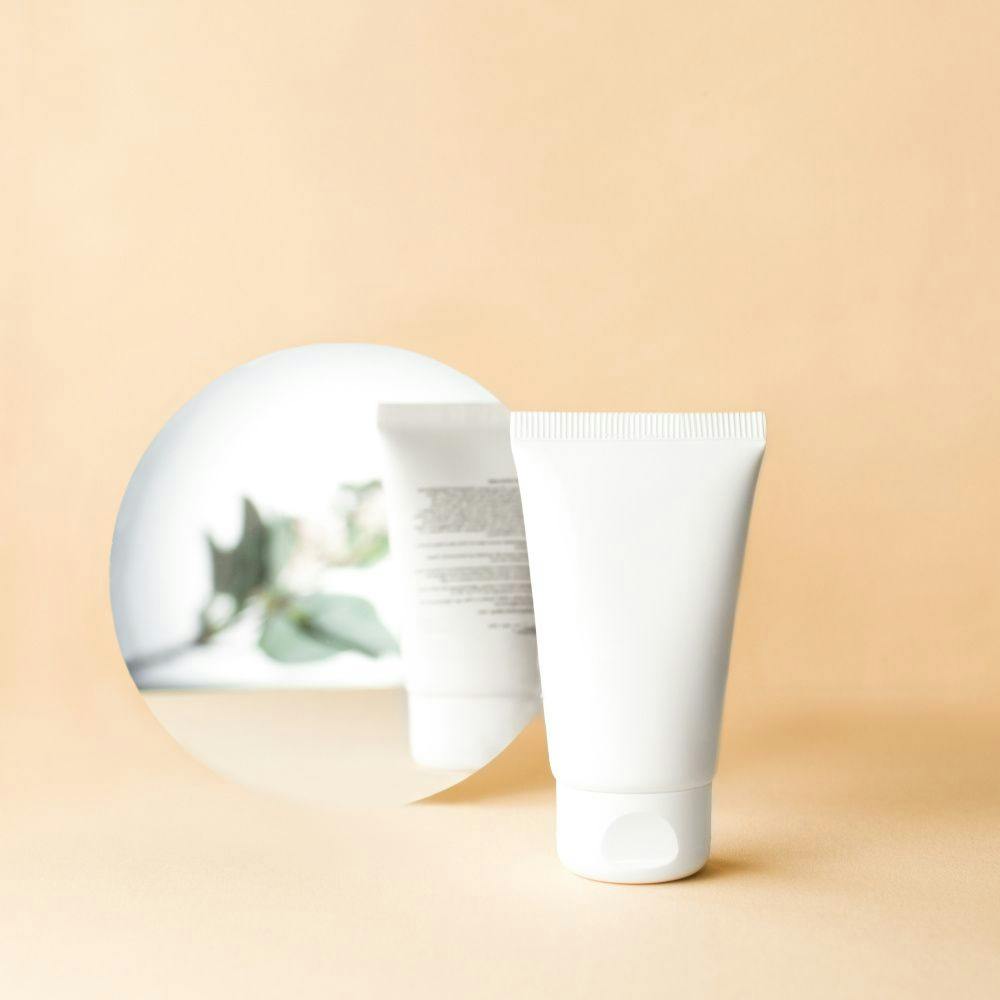Is hair health now the star of natural beauty supplements?
Hair health supplements are stealing the spotlight.
The market for hair health supplements is growing fast. Transparency Market Research estimates an 11.5% global CAGR for the category between 2021 and 2031.1 While this growth is partially sparked by new consumer concerns around hair loss following COVID-19 infection, factors like dietary gaps and a growing consumer understanding of the importance of nutrition to hair health have mostly contributed to renewed interest in hair health products.
Consumers are now looking for research-validated ingredients and formulations that tackle multiple aspects of hair health, and companies and ingredient developers are responding. Ahead, we look at some of the developments moving the market forward.
Aging Hair Meets Beauty-from-Within
Consumers are now learning more about hair-health nutrition, and supplement companies are presenting new ingredients to appeal to them. Roland Peralta, cofounder and chief innovation and product officer for hair-supplements brand Nutrafol (New York City), says that as hair health consumers become better informed, formulas can become more advanced and address more than one nutritional gap. For instance, he says, they now better grasp the link between hair health, stress, and nutrition.
Also, “Personalization is trending in new formulations,” Peralta adds. “We’re in an era where at-home testing and wearable devices permit us to learn real-time data about ourselves. This, in turn, guides our lifestyle choices and product selections to support our internal health for better hair health.”
Nutrafol’s core product line consists of four nutraceutical blends designed to improve hair growth and counteract hair thinning. Each product is formulated for a different audience, with the company’s patented Synergen Complex incorporating different ingredients for men, premenopausal women, postmenopausal women, and new mothers.
This February, Nutrafol made a big splash with a brand new product called Collagen Infusion, a collagen-based powdered mix that can be added to hot or cold liquid, including foods like yogurt, soup, and smoothies. The drink mix can be used in conjunction with the company’s other aforementioned foundational hair-growth supplement capsules. While these foundational products feature ingredients to improve hair growth, visibly thicken hair, and strengthen hair by targeting the root causes of hair thinning, adding in the new product, Collagen Infusion, can further protect hair health from the impacts of aging, the company says.
The marine collagen peptides in Collagen Infusion—along with ingredients like CoQ10, a blend of citrus flower acids, and amino acids—together are said to increase the elasticity of the skin of the scalp in part by replenishing existing collagen peptides. This not only supports the foundation of hair follicles; it also strengthens hair fibers and fights the hair breakage and weakening associated with aging. Nutrafol calls Collagen Infusion the first and only collagen product of its kind for hair health.
Traditional Herbs Now Being Studied Clinically
Herbs traditionally used for hair health are also now being clinically validated. In March, ingredient supplier Gencor (Irvine, CA) introduced a new hair health ingredient called HairAge Vitae. It is a branded extract of Ageratum conyzoides extract, a traditional Indian folk remedy for hair loss.
One 2021 open-label, randomized, parallel-design pilot trial2 funded by Gencor examined the efficacy of Gencor’s topical A. conyzoides extract on hair growth, quality of life, gene expression of 5-alpha reductase, and release of prostaglandin D2 in 23 adult men and women with hair loss. Subjects applied one teaspoon of an A. conyzoides gel topically to their scalps twice per day for eight weeks. The subjects were randomly assigned to use either a 1%-concentration or 0.5%-concentration formulation of the gel.
The subjects attended hair measurement assessments at baseline and once every two weeks. The subjects also completed self-report measures like the Hair Loss Quality of Life Distress Questionnaire to measure their level of subjective distress regarding their hair loss, as well as a self-assessment questionnaire to assess the participants’ subjective perception of their hair loss. The study included an in vitro component that measured the effects of A. conyzoides on 5-alpha-reductase expression and prostaglandin D2 (PGD2) release in human hair dermal papilla cells.
After 48 hours, A. conyzoides reduced 5-alpha-reductase expression and inhibited PGD2 release in the in vitro study. In the human trial, both groups exhibited a decrease in questionnaire scores after eight weeks. In the 1%-concentration group, two-thirds of the men and all of the women reported an improvement in hair loss symptoms after eight weeks, and over 90% of the men exhibited new hair growth. While the study authors caution that the clinical trial had a small sample size, the in vitro component does seem to validate the ingredient’s mechanism of action.
Gencor’s marketing director, Maggie McNamara, says the hair health market is overdue for a shakeup. While there’s no shortage of hair health products on the market, she says scientific exploration is changing the game.
“There hasn’t been anything new in this segment for quite some time,” McNamara says. “The next generation of hair care products will have to be more technical, with better performance for specific hair needs based on science.”
Consumer Favorites—But Better
Suppliers are also investing in developing new and updated forms of legacy ingredients for this category that boast better absorption, higher bioavailability, or more flexibility for different product formats. Formulators are gravitating toward ingredients that are familiar to consumers—and striving to improve them, said Elyse Lovett earlier this year. (Lovett was formerly vice president of marketing for Nutrition21 (Harrison, NY) and has since launched her own consulting and marketing agency, Lovett Marketing and Advertising Agency LLC.)
Take biotin, a mainstay formulators keep coming back to. “Biotin has been a staple nutrient in supplements for hair, skin, and nail benefits,” Lovett said, “but the issue with traditional forms of biotin is absorption. Unfortunately, there’s been a lack of innovation in the biotin category for the last decade.”
In response, in 2021 Nutrition21 launched Lustriva, a patented bonded arginine silicate/magnesium biotinate complex. The form of biotin found in Lustriva is 40 times more soluble than D-biotin, the form most commonly used in hair health supplements, the company says.
One recent randomized, double-blind, placebo-controlled clinical trial3 examined the effects of Lustriva on hair thickness and density in 90 women between the ages of 21 and 65. These subjects were experiencing thinning hair. The trial was conducted by the contract research organization Nutrasource (Guelph, Canada) on behalf of the study sponsor JDS Therapeutics (Harrison, NY). JDS Therapeutics is the parent company of Nutrition21.
The subjects were evaluated for hair density and hair root status via the TrichoScan HD system, a computer-based testing method that calculates hair density. For 12 weeks, subjects were randomly assigned to receive either 1) one daily capsule of high-dose Lustriva containing 146.5 mg of arginine silicate and 11.7 mg of magnesium biotinate, 2) one daily capsule of low-dose Lustriva containing 146.5 mg of arginine silicate and 3.5 mg of magnesium biotinate, or 3) a placebo.
After three weeks, the high-dose group experienced statistically significant changes in vellus and terminal hair ratios that were maintained throughout the study. However, the lower dose was found to perform no better than a placebo.
Lovett said Lustriva’s ingredients have GRAS status and are flexible in formulations. Lustriva can be easily incorporated in RTD beverages, dry mixes, gummies, capsules, and tablets.
Postbiotics Enter the Scene
While herbal extracts have dominated hair health formulations, the market is now seeing an influx of probiotics designed to promote hair health and growth. “It should come as no surprise that some of the enzymes produced by microbiota are beneficial for hair health,” says Muhammed Majeed, PhD, founder and chairman of ingredients supplier Sabinsa Corp. (East Windsor, NJ).
This is also giving rise to the entry of postbiotics in the hair health market. For instance, says Majeed, “[Sabinsa’s branded] LactoSporin, secreted by Sabinsa’s proprietary probiotic LactoSpore, has the remarkable property of inhibiting 5-alpha reductase, thus contributing to hair growth.” Launched in 2019, LactoSporin is a patented postbiotic ingredient derived from the purified supernatant of Sabinsa’s patented LactoSpore Bacillus coagulans MTCC 5856 probiotic strain.
The company is now studying LactoSporin’s potential for hair health. One 2020 randomized, open-label trial4 conducted and funded by Sabinsa compared the efficacy of a 2% LactoSporin face cream and a benzoyl peroxide solution on mild to moderate acne in 64 men and women between the ages of 18 and 35. This trial also included an in vitro component that evaluated LactoSporin’s 5-alpha reductase inhibitory properties. 5-alpha reductase is an enzyme that breaks testosterone into dihydrotestosterone, a hormone that is believed to induce hair loss.
In the in vitro component of this study, human follicle dermal papilla cells were incubated overnight in a Dulbecco’s Modified Eagle’s Medium and a 10% fetal bovine serum. The cells were then exposed to 50 nm of testosterone, administered either with or without LactoSporin, and were incubated for a further 48 hours. LactoSporin was administered in five concentrations ranging from 0.13% to 2%. The resulting supernatant was assessed for 5-alpha dihydrotestosterone levels using an ELISA kit. Analysis revealed that LactoSporin inhibited 5-alpha reductase at all concentrations, but that a 0.5% concentration achieved the highest degree of inhibition, at 17%—a promising finding for the hair health market.
Research Investments Fuel New Products
Hair health products are becoming more personalized, with an emphasis on proven ingredients. Supplier investments in clinical trials and in vitro research is validating certain hair health nutrients, which will enable brands to win consumer trust more easily. With consumers showing a renewed interest in hair health and possessing a more sophisticated understanding of nutrition’s role in promoting hair growth, hair health nutrition brands will find success with proven hair health formulations that can meet their growing expectations.
References
- Transparency Market Research report. “Hair Supplements Market (Type: Single Ingredient and Multi-Ingredient; Nature: Organic and Conventional; Form: Powder, Gummies & Soft Gels, Tablets, Capsules, and Liquid; and Sales Channel: Hypermarkets/Supermarkets, Specialty Stores, Drugs & Pharma Stores, and Online Retail) – Global Industry Analysis, Size, Share, Growth, Trends, and Forecast, 2021-2031.” Published online 2021.
- Clayton P et al. “Ageratum conyzoides L. extract inhibits 5α-reductase gene expression and prostaglandin D2 release in human hair dermal papilla cells and improves symptoms of hair loss in otherwise healthy males and females in an open label pilot study.” Journal of Cosmetology & Trichology, vol. 7 no. 1 (2021)
- Kalman DS et al. “A randomized double-blind evaluation of a novel biotin and silicon ingredient complex on the hair and skin of healthy women.” Journal of Clinical & Experimental Dermatology Research, vol. 12, no. 1 (2021): 551
- Majeed M et al. “Novel topical application of a postbiotic, LactoSporin, in mild to moderate acne: A randomized, comparative clinical study to evaluate its efficacy, tolerability and safety.” Cosmetics. Published online September 15, 2020.


.png&w=3840&q=75)

.png&w=3840&q=75)



.png&w=3840&q=75)



.png&w=3840&q=75)



















